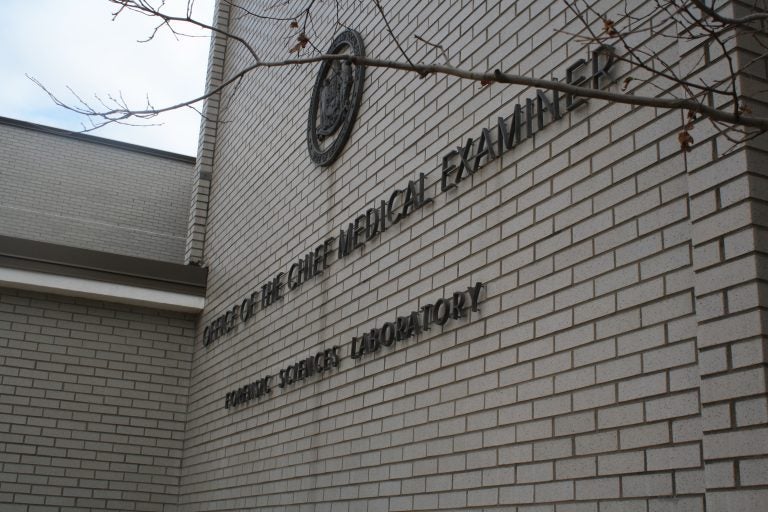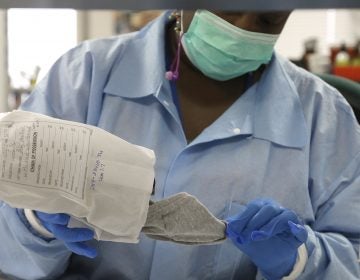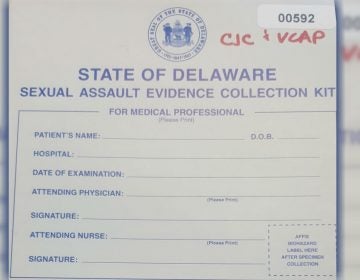Del. investigating how 1,600 DNA samples were not added to federal database
State forensic lab failed to enter 1,600 samples of convicted felons from 2002 to 2014 into CODIS.

Officials are now investigating how the Delaware forensic lab, which had a scandal involving stolen drug evidence in 2014, also failed to enter nearly 1,600 DNA samples over 12 years into a federal database authorities use to solve cases. (Cris Barrish/WHYY)
Last month, Delaware officials were crowing after the arrest of a suspect in a series of rapes whose DNA was found while testing nearly 1,000 long-neglected rape kits.
Some of those kits had languished at police departments and hospitals for decades.
But now officials have been forced to admit that the same suspect could have been charged nearly eight years ago.
Kili Mayfield was charged last month after his DNA was found in a rape test kit from 2014. He was also charged with rapes that occurred last year and in 2010.
But state authorities now admit they should have been able to connect Mayfield to the 2010 rape sooner — if not for another breakdown in Delaware’s evidence-collection system.
That’s because the state forensic lab failed to enter Mayfield’s sample from a 2002 arrest — and nearly 1,600 other samples of convicted felons from 2002 to 2014 — into a federal database authorities use to solve crimes. The data program is the Combined DNA Index System, known as CODIS.
Nancy McGee of the Sexual Assault Network of Delaware said she’s stunned that the state has failed to use all the technological advances available today.
“Disheartening doesn’t even begin to describe it, and I wouldn’t want to listen to the comments from the women who were victims later when, you know, if there was actual information out there,” McGee said.
The DNA samples dating to 2002 were stored in a box found in 2014 amid an investigation into stolen drug evidence, according to state officials. All those samples were entered into the database by 2016, said Robert Coupe, secretary of the Delaware Department of Safety and Homeland Security.
Coupe’s office oversees the forensics lab in Wilmington. He said he’s initiated an internal investigation to find out how critical evidence sat in a box for so many years.
“We are very concerned by what happened and the impact this has on public safety as well as our concern for any victims that were involved in it,” Coupe said.
The probe aims to “determine what happened and memorialize and document this so that going forward, if we do have another case or another event that takes us back to that time frame, we will hopefully have the answer that is needed. Also to ensure that what we have in place now will maintain the integrity of this process so that this doesn’t happen again.”
Public defender Lisa Schwind, who is on a state panel created to monitor lab operations after the 2014 scandal involving stolen evidence, argued that the state shouldn’t be allowed to investigate itself.
“The samples were there during a time period when there’s already been an investigation,” she said. “So I think an independent investigation could bring forth a little more sunlight to the situation.”
The previous investigation by an outside contractor and the Department of Safety and Homeland Security occurred before Coupe, former head of the state police and the state corrections system, took office in January 2017.
Schwind said she won’t be surprised if the investigation reveals more cases that could have been solved years ago.
“There may be more to come. We’ll have to see,” she said.
McGee, whose agency counsels victims, agreed.
“I really shudder to think about what other information is going to come out, how many other instances,” she said.
WHYY is your source for fact-based, in-depth journalism and information. As a nonprofit organization, we rely on financial support from readers like you. Please give today.





